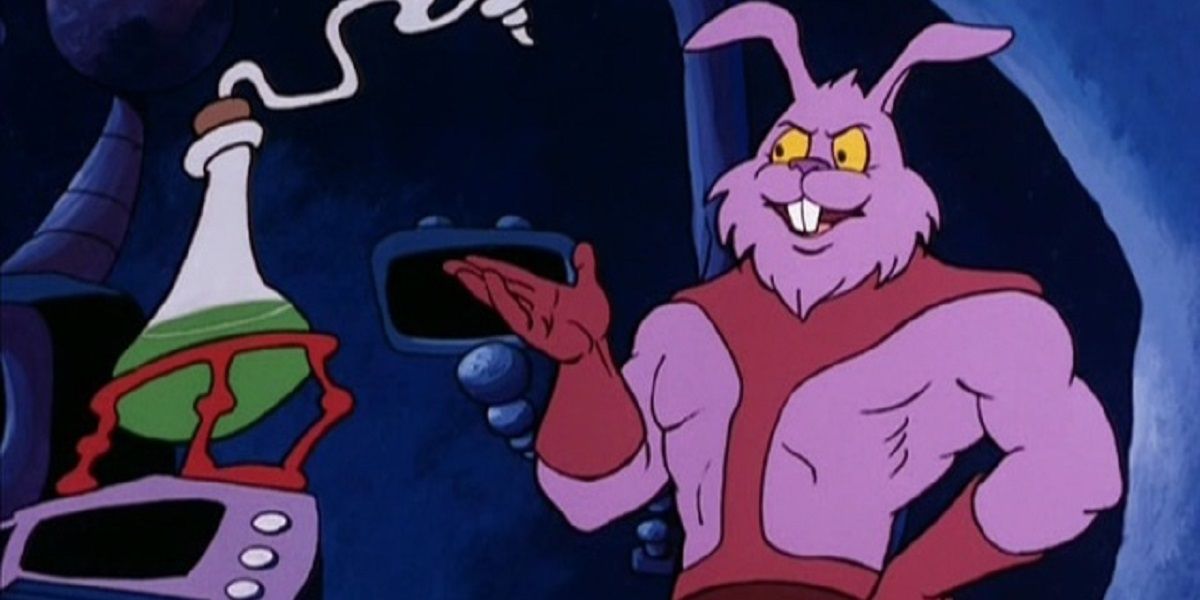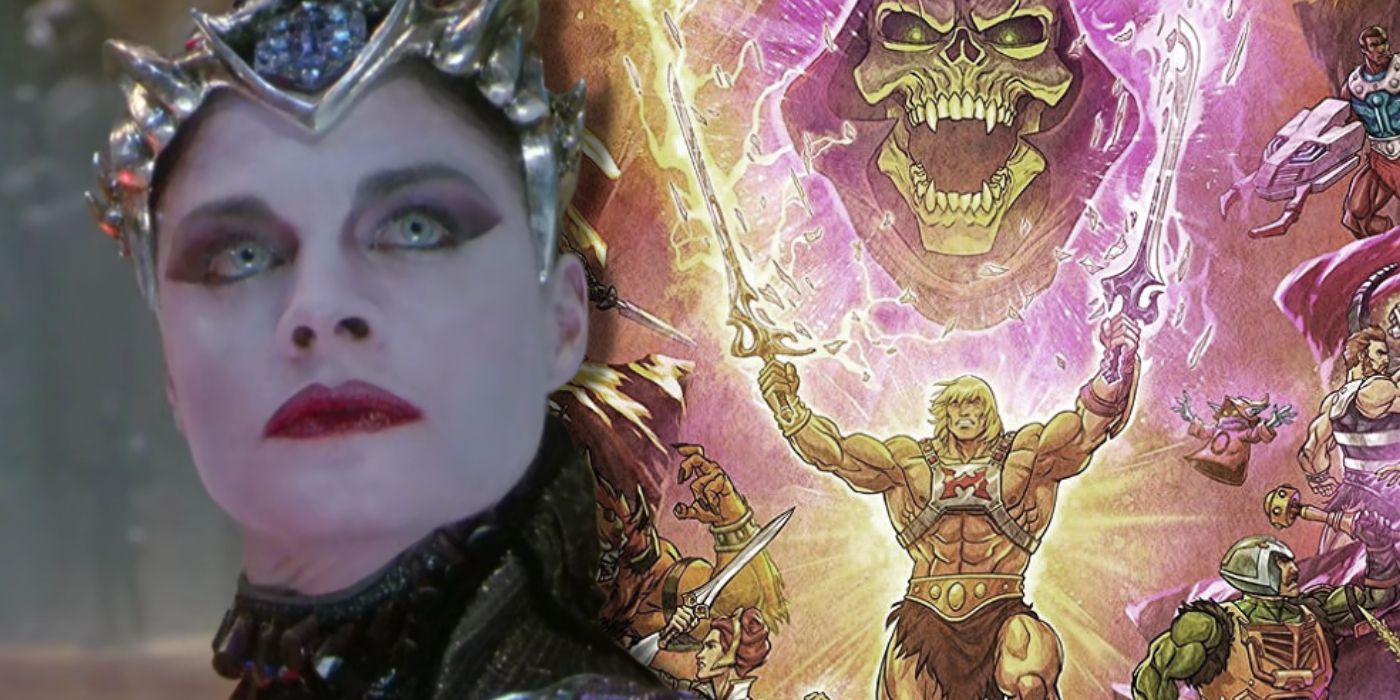Masters of the Universe: Revolution will continue the sequel story following He-Man and Skeletor that began with Revelation. Yet, the new villain menacing Eternia is born from the show's silliest gag: the Cult of Motherboard. After Skeletor's apparent death and magic's disappearance from the realm, a technological horror is apparently in service to the Evil Horde.
Revelation was a sequel series to the original cartoon He-Man and the Masters of the Universe. Created by children's programming powerhouse Filmation in the 1980s, the Netflix series was meant to continue that story for adult viewers. The actor providing the voice for the villainous Motherboard is Meg Foster, who played Evil-Lyn in live-action. He-Man and the rest of the gang on Eternia were genuine sensations in the 1980s, leading to 1987's Master of the Universe, a live-action movie that generally displeased everyone. Foster's take on Skeletor's right-hand sorceress was one of the few high points in that movie. Her inclusion is one way Kevin Smith, Ted Biaseli and their follow producers show a profound love for the characters and their history. Making the silliest sub-plot of the first season a terrifying and powerful threat in the second is another.
The Cult of Motherboard Feels Just Like Filmation's MOTU Cartoon
Masters of the Universe began as an effort to sell a line of barbarian toys with sci-fi vehicles, but the seeds those toys planted in the hearts of kids grew into a genuine love for the material. This happened because, to justify the story as more than just a toy commercial, writers made a show about compassion, empathy and understanding. Even though they never changed, kids and adults connected deeply to the stories. But they also had silly elements, such as "The Tingler" or a character with many faces called "Man-E-Faces." The Cult of Motherboard felt like a reference to these elements of that old show.
Revelation gave Eternia its most adult story yet, specifically dealing with the death of He-Man. Skeletor also seemed to die, and magic was all but erased from the realm. At Snake Mountain, Skeletor's lair, some of his henchmen began worshiping a techo-goddess they called "the Motherboard." Even the reference to real-world computing feels like a name that would've come right out of the 1980s. If it just remained a gag, it would've been perfect. Taking something fans dismissed as silly and making it a genuine threat is the right inspiration for a Masters of the Universe twist.
He-Man's story does not lend itself to being taken too seriously. Nonetheless, Revelation took the rich, beloved characters in the universe and pushed them further than ever before in animation. The violence is certainly more intense than in the Filmation days, as are the emotions. Yet the compassion, empathy and everything else that made the characters special remains. The Cult of Motherboard seemed included just for laughs. Instead, it's a far more serious threat that will examine Eternia's technology like the first season examined its magic.
Masters of the Universe Has a Rich Mythology Ripe for Expansion
Despite not having a serialized element, the Filmation Masters of the Universe storytellers and the creators at Mattel developed a mythology of sorts. Still, what mythology there was remained tied to action figures and play sets. It was all very vague, designed to spark children's imaginations to create all those details themselves. Yet, as kids who grew up with genre storytelling started to tell the stories, it was treated much more seriously. Masters of the Universe: Revolution can use Foster's Motherboard character to explore fascinating questions about the power of technology in a world full of magic.
Revelation took some big swings, annoying some fans who expected a more TV-MA version of the Filmation show. Yet, certified dummies like Tri-Klops and Trapjaw starting this weird anti-magic cult is built from the joyful, unafraid-to-be-silly DNA of that first series. Making that anti-magic cult a serious threat in Revolution was another big swing. Yet, hearing Motherboard sound like Evil-Lyn from the movie will give this new villain some of its real-world magic: nostalgia. The actual Evil-Lyn in this series is pretty much just "Lyn" now, anyway. As much as the series is meant to reconnect viewers to their childhoods, the show must move the story forward.
The Filmation-era versions of Prince Adam, Teela, Skeletor and Evil-Lyn were never allowed to change. It's why they looked and felt less familiar by the second episode of Revelation because they'd all changed a great deal. The characters had to mature because the audience had, especially regarding sci-fi and fantasy storytelling. The Motherboard seemed, at first, like a zany gag in the grand tradition of Masters of the Universe. Taking a group of techno-goofballs and turning them into seriously threatening villains proves that Revelation and Revolution are worthy successors to the Filmation era of He-Man.
Masters of the Universe: Revolution is expected on Netflix in 2024.



